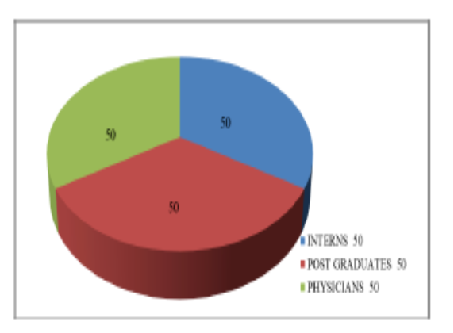


Journal of Pharmaceutical Research
Year: 2025, Volume: 24, Issue: 2, Pages: 118-123
Original Article
V Suryaprakash1,∗, Harish G Bagewadi2, Priyadarshini M Deodurg3
1Postgraduate, Department of Pharmacology, Gulbarga Institute of Medical Sciences, Kalaburagi, Karnataka, India
2Associate Professor, Department of Pharmacology, Gulbarga Institute of Medical Sciences, Kalaburagi, Karnataka, India
3Professor and HOD, Department of Pharmacology, Gulbarga Institute of Medical Sciences, Kalaburagi, Karnataka, India
*Corresponding Author
Email: [email protected]
The term “P-drug” refers to the preferred or personal drug of choice for a particular clinician for a specific medical condition. The P-drug concept enables better medication prescriptions and enhances treatment adherence. The aim of the study is to assess the knowledge, attitude and perception regarding ‘P-drug concept’ among medical interns, Postgraduates and Physicians to prescribe drugs rationally. The study is a prospective, cross-sectional pre-validated questionnaire-based study conducted in the Gulbarga Institute of Medical Sciences, Kalaburagi. A total of 150 participants includes Medical interns (50), Postgraduates (50) and Physicians (50) from GIMS were enrolled and instructed to fill the questionnaire using Google form. Majority of the participants know the meaning and main purpose of P drug concept. Physicians and postgraduates having better knowledge of P drug concept compared to Interns. Positive attitude observed among health care professionals. All participants accepted that P-Drug Concept should be taught in detail to medical professionals. Poor perception observed among Interns and Postgraduates. Conclusion: The P-drug concept is essential tool to improve the quality of health care, improve the knowledge of essential medicine and practicing rational use of medicine. This study highlighting the necessity for educational intervention attitude enhancing awareness of P-drug concept among medical interns and postgraduates.
Keywords: P-drug concept, Essential medicine, Rational use of Medicines
© 2025 Published by Krupanidhi College of Pharmacy. This is an open-access article under the CC BY-NC-ND license (https://creativecommons.org/licenses/by-nc-nd/4.0/)
Subscribe now for latest articles and news.